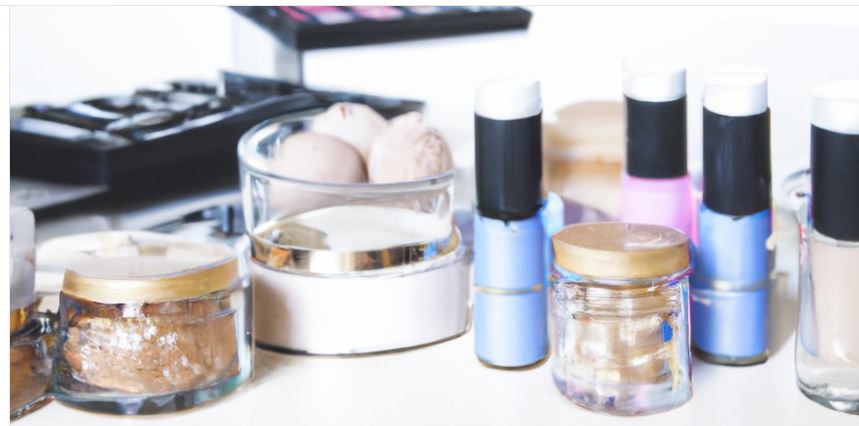How To Start a Successful Organic Skincare Business

Starting an organic skincare business can be rewarding and challenging for any entrepreneur. With the increasing demand for natural and environmentally-friendly products, there has never been a better time to enter the market. However, competition is also high, so having a solid dream and niche plan is essential.
In this startup guide, we'll explore everything you need to know to start a successful organic skincare business, from developing your brand to sourcing ingredients and marketing your products. Let's get started.
How can I start an organic skincare business?
Organic skincare is a rapidly growing industry, and starting your own business can be rewarding. However, starting a business is about more than just having a great product but also entails careful planning and execution.
Here are some essential holistic steps to follow to launch an ultimate organic skincare business:
1. Research the market and competition: Before starting a business, conducting thorough research into the industry and your interest in the company is crucial. This includes understanding consumer preferences, trends, and pricing strategies.
2. Develop a unique branding identity: A strong brand identity is essential for your business. This includes creating a unique brand name, logo, and packaging representing your values and mission. A distinctive brand image sets your business apart from competitors and helps build brand recognition.
3. Formulate your organic skincare products: You must develop unique formulations to create a line of organic skincare products. This involves selecting organic ingredients and testing combinations to develop effective products that meet consumer needs.
4. Create a business plan: A solid business plan outlines your goals, strategies, and financial projections. It helps you stay focused and organized while providing a roadmap for achieving your business objectives.
5. Secure funding: Starting a business can be expensive, and securing funding is often necessary. Consider options such as loans, grants, or crowdfunding to finance your business.
6. Obtain necessary permits and licenses: Ensure you obtain all the required permits and licenses to operate your business. This includes registering your business, getting a tax identification number, and complying with local and federal regulations.
Starting an organic skincare business requires more than just creating great products. It would help if you had a solid plan, conducted thorough research, and executed your strategies precisely.
By following these essential steps, you can launch a successful organic skincare business that meets the needs of consumers and stands out in a competitive market. Remember to stay focused, watch the market, and strive for excellence in your business.
What are the best ingredients for organic skincare products?
In today's world, more and more people are opting for organic skincare products over chemically-based options. Natural, eco-friendly products not only provide superior quality but also help promote sustainability.
Regarding ingredients for organic skincare products, a few critical, valuable players offer significant benefits for the skin.
One of the best ingredients for organic skincare products is aloe vera. This plant contains a wealth of vitamins and minerals, including vitamins A, C, and E, as well as antioxidants and anti-inflammatory properties.
Aloe vera is particularly beneficial for soothing and hydrating the skin, making it an excellent choice for dry or sensitive skin.
Another excellent ingredient for organic skincare products is coconut oil. This versatile oil contains beneficial fatty acids that moisturize and nourish the skin for a youthful, healthy look.
Incorporating this particular item into your daily skincare routine can reduce bacteria that cause acne and also has antimicrobial qualities that make it suitable for those with skin that is on the oilier side or prone to acne.
Jojoba oil is another excellent ingredient to look for in organic skincare products. This oil is similar in composition to the natural oils produced by the skin, making it an effective moisturizer that won't clog pores. Jojoba oil is a powerful source of antioxidants that can guard the skin against any harm caused by free radicals.
Rosehip oil is another ingredient that offers many benefits for the skin. This oil is rich in vitamins A and C, as well as antioxidants and essential fatty acids that help to regenerate and repair the skin.
Rosehip oil is beneficial for reducing the appearance of scars and fine lines, making it an excellent choice for anti-aging skincare products.
It's essential to choose effective but also safe and gentle ingredients for the skin. Organic skincare products can also contain Shea butter and vitamins A and E to keep your skin hydrated and healthy. Additionally, Green Tea, rich in antioxidants, can help protect against damage caused by free radicals.
To summarize, starting an organic skincare business requires thoughtful preparation and execution and a strong emphasis on creating superior products that meet customer demands.
By incorporating these key ingredients into your skincare formulations, you can create products that offer significant benefits for the skin and stand out in a competitive market. Remember to stay current on industry trends and consumer preferences, and strive for excellence in your business.
What are the best ways to source organic ingredients for skincare products?
Sourcing organic ingredients for skincare products is a crucial aspect of the cosmetic industry to ensure steady supplies.
As consumers become increasingly aware of the chemicals and toxins in traditional skincare products, the demand for organic and natural alternatives has skyrocketed.
Therefore, skincare companies must source the highest quality organic ingredients to meet this demand.
If you're looking for natural ingredients for your skincare products, here are some of the top-rated methods to source them:
1. Look for Certified Organic ingredients: This certification ensures that the ingredients have been grown and processed without using synthetic fertilizers, pesticides, or genetically modified organisms.
2. Partner with reliable suppliers: Skincare companies must partner with reliable suppliers that provide high-quality organic ingredients. Suppliers should have a reputation for providing pure, organic ingredients that are free of contaminants and meet the company's standards.
3. Conduct on-site visits: Companies can visit a supplier's facility or farm to ensure their organic ingredients are up to par. This also allows the company to build a relationship with the supplier and learn more about their sourcing practices.
4. Use online databases: There are online databases that list suppliers of organic ingredients. Companies can use these databases to find reliable suppliers and compare prices and quality.
5. Attend trade shows: Skincare companies can attend trade shows and conferences to network with suppliers and learn about new trends and sourcing practices.
These events also provide opportunities to sample fresh ingredients and products and better understand the industry.
Sourcing high-quality organic ingredients is critical to starting and maintaining a successful organic skincare business.
Companies that are mindful of their practices, invest in good-quality ingredients and follow these tips can produce items that function well and are safe for consumers and the environment.
In addition, as the demand for organic skincare products continues to grow, companies prioritizing high-quality sourcing practices will be well-positioned to thrive in this competitive market.
What techniques can create organic skincare products with a long shelf life?
With consumers becoming more informed about the advantages of organic skincare, there is a growing demand for natural products with a longer shelf life.
Several methods are available to make organic skincare products that won't spoil quickly. From natural preservatives to controlled packaging methods, you can use these techniques to create organic products with a longer shelf life. The challenge for manufacturers is to develop formulations that are both effective and stable without using synthetic preservatives.
1. Use natural preservatives
Natural preservatives such as vitamin E, rosemary extract, citric acid, and grapefruit seed extract can extend the shelf life of organic skincare products.
These ingredients have antimicrobial properties that inhibit the growth of bacteria and fungi. They are also rich in antioxidants that protect the product from oxidation and rancidity.
2. Use airless packaging
Airless packaging is a technology that preserves the integrity of the product by preventing air from entering the container. This type of packaging is ideal for organic skincare products as it reduces the risk of contamination and extends the product's shelf life.
3. Use high-quality ingredients
The quality of the ingredients used in organic skincare products can significantly impact their shelf life. Ensuring the components are correctly stored is essential to maintain their potency and efficacy. High-quality ingredients from reputable suppliers are less likely to be contaminated with bacteria or other microorganisms.
4. Optimize pH levels
The pH level of a product can affect its stability and shelf life. Organic skincare products should have a pH level close to the skin's natural pH, around 5.5.
For optimal product performance, it is essential to maintain the correct pH level; if this changes significantly, the product can suffer from degradation or instability. By optimizing the pH level of the product, manufacturers can improve its shelf life and effectiveness.
In conclusion, creating organic skincare products with a long shelf life requires a combination of natural preservatives, airless packaging, high-quality ingredients, and optimized pH levels.
As more consumers seek wild and sustainable skincare options, manufacturers prioritizing these techniques will be well-positioned to succeed in the market. These strategies can enable businesses to create effective and secure products for customers and the environment.
What tips do you have for marketing organic skincare products?
Marketing organic skincare products can be challenging, but it can be rewarding with the right strategies. If you want to promote organic skincare items successfully, here are a few helpful tips that you should bear in mind::
1. Know your target audience:
Before developing a marketing strategy, knowing your target audience is essential. Who are the people that are most likely to use organic skincare products? What are their needs and preferences? Knowing your target demographic is critical to creating an effective marketing campaign that resonates with them. This way, you can ensure your message is tailored to their needs and preferences.
2. Focus on the benefits:
One of the key selling points of organic skin care products is their benefits. Whether it's reducing the appearance of fine lines and wrinkles or improving skin texture, highlight the help of your products in your marketing materials.
3. Use social media:
Utilizing social media as a platform for marketing organic skincare products has become increasingly popular due to its effectiveness. It provides an efficient way for brands and businesses to reach a large target audience. Use platforms like Instagram and Facebook to tell your story while showcasing your products and engaging with your audience. Share customer testimonials, DIY, and before-and-after photos to show the effectiveness of your products.
4. Collaborating with influencers to achieve success:
Organic skincare products can be effectively promoted with the help of influencer marketing. Identify influencers in the beauty and skincare space who align with your brand and product offerings - partner with them to create content that showcases your products and reaches their followers. Such campaigns are a very impactful way for brands to reach their target audiences.
5. Offer samples:
Providing samples of your goods is a great way to introduce potential customers to your offer. It gives them a feel for what you can provide and increases the chances for conversion. You can give sample examples as part of a promotion or giveaway or include them with orders. Ensure the models are high-quality and representative of your brand, as they can be a powerful tool for converting potential customers to loyal ones.
In conclusion, starting a successful organic skincare business requires a focus on quality, sustainability, and effective marketing strategies.
By prioritizing these elements, companies can differentiate themselves in the competitive skincare market and build a loyal customer base. An organic skincare business can be profitable with the right approach and contribute to a healthier and more sustainable world.
What online platforms are best for selling organic skincare products?
Choosing the right online platform to sell organic skincare products can make all the difference in reaching the right target audience and generating sales. Here are a few of the best online platforms to consider for selling organic skincare products:
1. Etsy - Etsy is a popular marketplace specializing in handmade and unique products. It is an excellent platform for selling organic skincare products, as it has a large customer base interested in natural, eco-friendly products.
2. Amazon - Amazon is one of the world's biggest digital stores and shopping platforms, making it an ideal spot for reaching a massive customer base. It also offers a subscription program called Amazon Subscribe & Save, which allows customers to receive regular shipments of their favorite organic skincare products.
3. Shopify - Shopify is an excellent online store creation platform. It offers a variety of features to help you design and manage your online store, including payment processing, inventory management, and shipping options. It provides an easy-to-use interface and reliable hosting services, which make it an ideal choice.
4. Instagram - Instagram is a popular social media platform that can sell organic skincare products through visual storytelling. You can post photos and videos of your products and engage with your audience through comments and direct messaging.
5. Whole Foods Market - If you have a physical store or your products are already sold in stores, consider selling your organic skincare products through Whole Foods Market. Whole Foods is renowned for being a store that only stocks natural and organic items - an ideal partner for organic skincare companies.
No matter which platform you choose, optimizing your product listings and using high-quality images to showcase your products is essential. Having a solid brand message and using social media and email marketing to drive traffic to your online store are also crucial.
Starting a successful organic skincare business requires hard work, but it can be a rewarding personal and financial venture.
By focusing on high-quality ingredients, adequate packaging, and strategic marketing, you can build a loyal customer base and positively impact the world.
Remember to prioritize sustainability and transparency in your business practices, and always strive to improve and innovate. With dedication and perseverance, you can create a thriving organic skincare business that you can be proud of.
What are the challenges of running an organic skincare business?
Organic skincare has gained tremendous popularity in recent years. More and more consumers are looking for natural and plant-based beauty products.
However, running an organic skincare business has its own set of challenges. Organic skincare business owners must face various issues, such as stiff competition, resource management, customer retention, cost controls, etc.
These are all crucial elements in the success of any business and must be addressed accordingly.
1. Sourcing high-quality botanica ingredients: One of the most significant challenges that organic skincare businesses face is sourcing high-quality ingredients.
Organic ingredients are more expensive than synthetic counterparts, and finding reliable suppliers can take time and effort. Additionally, some components may be scarce or seasonal, making maintaining a consistent product line difficult.
2. Meeting regulatory requirements: Organic skincare businesses must comply with strict regulations regarding the labeling and marketing their products. The FDA closely monitors the claims made by skincare companies, and any false or misleading claims can result in fines or legal action.
3. Establishing a solid brand identity is crucial to the success of any organization, especially for organic skincare brands. Success is often challenging but achievable with the correct tools and approaches.
These companies often have different marketing budgets than more significant, established brands. They must rely on word-of-mouth marketing and social media to build their reputation.
4. Educating consumers: Many consumers are still unfamiliar with organic skin care products and may need help understanding the benefits of natural ingredients. Educating consumers about the benefits of organic skincare requires time and effort, but it is essential to building a loyal customer base.
5. Maintaining product consistency: Unlike synthetic skincare products, which can be mass-produced with consistent results, organic skincare products may vary in texture, color, and scent due to natural ingredient variations.
Ensuring product consistency can be challenging, as even slight variations can impact the effectiveness and quality of the final product.
Starting an organic skincare business can be rewarding and lucrative despite these challenges.
By addressing these challenges and staying true to your brand values, you can build a successful business that meets the needs of consumers and stands out in a competitive market.
With a focus on quality ingredients, compliance with regulations, brand awareness, consumer education, and product consistency, you can create a thriving organic skincare business that positively impacts people's lives and the environment.
Conclusion
Starting an organic skincare business can be daunting, but anyone can succeed with the proper knowledge and resources.
With the help of organic ingredients, natural preservatives, and quality packaging materials, you can create unique products that will appeal to customers looking for healthier alternatives.




